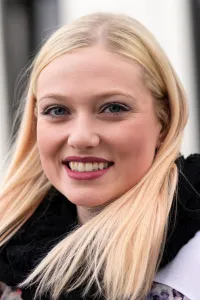
Jana Lena Jünger is in the 3rd semester of her educational science degree. She is pursuing the Bachelor of Arts (2-subject programme) degree. Jana’s second subject is history.
What made you choose this degree programme?
I’d initially studied history and English studies and soon realised that I felt more at home in the humanities than in philology. In the sixth form, I did advanced educational science, and I had a rough idea of what to expect in the degree course. I have never regretted switching my degree course and I’d definitely do it again. I fully endorse the educational science degree course.
In which respect have or haven’t your expectations been fulfilled?
I’d approached the degree course with the expectation that I’d have to get through a lot of study material. This expectation has been very much fulfilled. The degree course requires a lot of work, and you have to deliver performance in any given semester. This concept introduces a continuity of sorts into the degree course, which is something I appreciate a lot for the most part.
However, I had initially assumed that as students we’d have more “liberties”. My expectation of freedom has not been met, unfortunately, because the degree course is structured very much like school. This has both advantages and disadvantages.
Which aspect of your degree programme do you enjoy most?
I find it endlessly fascinating how diverse the degree course is. Personally, I like the fact that we gain an insight into various research areas of educational science via different fields of work and that we are able to choose, to a certain extent, which areas we wish to focus on.
What has been your biggest challenge to date?
One of the greatest challenges for me has been to keep pace with all my courses. There is a lot of reading to get through in this degree course. It’s not uncommon that we have to prepare long and, for the most part, complicated texts for several seminars from one week to the next. After all, I – along with most of my fellow students – don’t want to be merely physically present in a seminar without participating in it. And in order to be able to participate in class, you have to be prepared – and occasionally you won't be able to live up to your own standards and perhaps even lose some sleep.
What would you like to become after completing your degree?
I can’t really answer this question. I’d enrolled in the degree course with the idea of qualifying as a teacher. However, now I could picture myself working in an entirely different field. I might perhaps have the opportunity to work as a researcher after my Master’s degree – either at a university or at a third-party institute. Educational science (as well as my second subject) open up a broad range of professional options. This renders the discipline even more unique and interesting in my eyes.
Which advice would you like to give to students who consider enrolling in this degree programme?
I’d recommend the course to anyone who is willing to invest a lot of time and effort into their degree course, regardless if they want to qualify as a teacher or if their wish to, for example, work in adult education. People who don’t like to read a lot, however, should consider in advance if they are willing to struggle through. Anyone who likes to learn new things (sometimes by heart) and who would like to understand and expand on theories from different eras and perspectives will enjoy the educational science degree course a lot!




